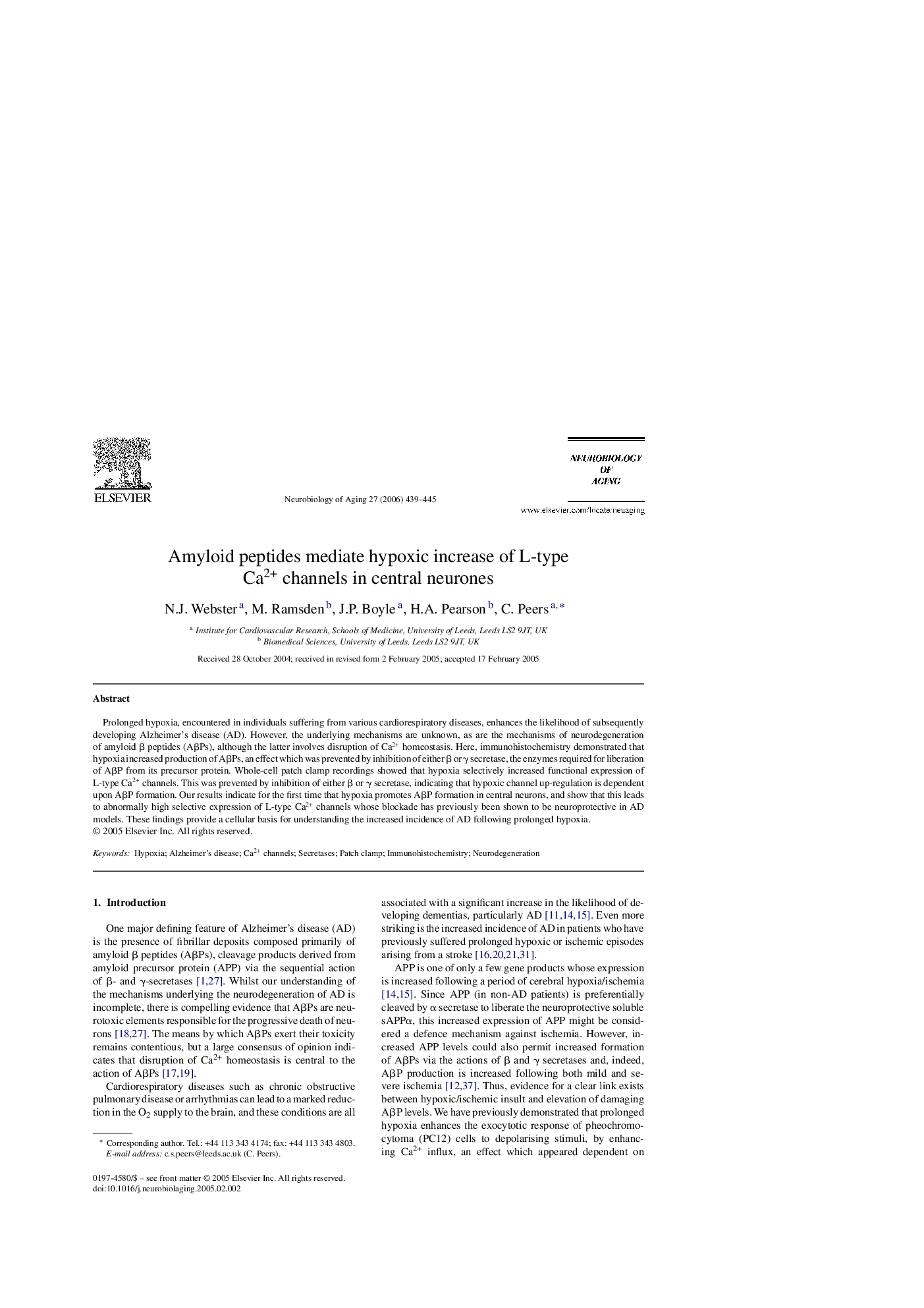| Article ID | Journal | Published Year | Pages | File Type |
|---|---|---|---|---|
| 328955 | Neurobiology of Aging | 2006 | 7 Pages |
Prolonged hypoxia, encountered in individuals suffering from various cardiorespiratory diseases, enhances the likelihood of subsequently developing Alzheimer's disease (AD). However, the underlying mechanisms are unknown, as are the mechanisms of neurodegeneration of amyloid β peptides (AβPs), although the latter involves disruption of Ca2+ homeostasis. Here, immunohistochemistry demonstrated that hypoxia increased production of AβPs, an effect which was prevented by inhibition of either β or γ secretase, the enzymes required for liberation of AβP from its precursor protein. Whole-cell patch clamp recordings showed that hypoxia selectively increased functional expression of L-type Ca2+ channels. This was prevented by inhibition of either β or γ secretase, indicating that hypoxic channel up-regulation is dependent upon AβP formation. Our results indicate for the first time that hypoxia promotes AβP formation in central neurons, and show that this leads to abnormally high selective expression of L-type Ca2+ channels whose blockade has previously been shown to be neuroprotective in AD models. These findings provide a cellular basis for understanding the increased incidence of AD following prolonged hypoxia.
